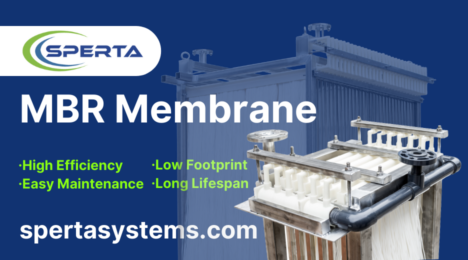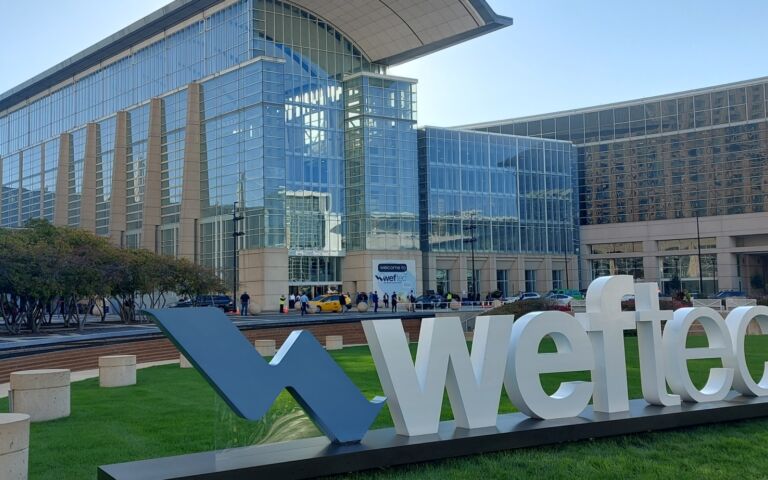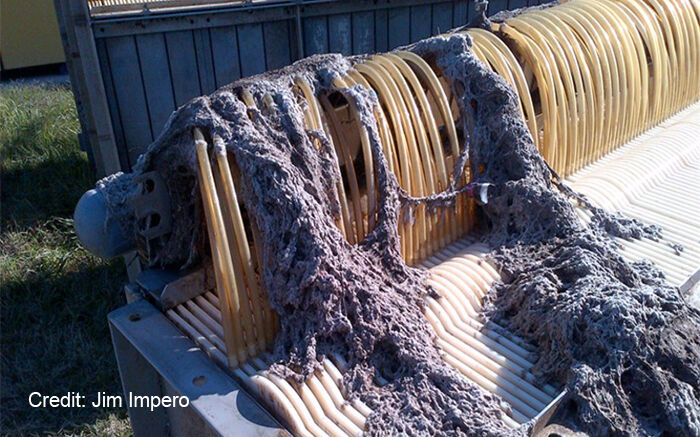MBRs − towards zero energy and zero waste


Simon Judd has over 35 years’ post-doctorate experience in all aspects of water and wastewater treatment technology, both in academic and industrial R&D. He has (co-)authored six book titles and over 200 peer-reviewed publications in water and wastewater treatment.
A long-standing notion regarding wastewater is its potential to provide a useful resource, rather than being viewed as a waste. This is not completely far-fetched. Wastewaters high in readily biodegradable organic carbon can be anaerobically treated to provide methane. Useful inorganic materials like ammonium and phosphate can be potentially recovered by precipitation, ion exchange or capacitive deionisation and, if appropriately purified, the water itself can be reused as well.
So how far can this be taken? As far as the anaerobic MBR is concerned the first most obvious observation is that the configuration would probably have to be immersed in order to make use of the biogas for scouring and eliminate the need for sludge pumping. If the most recent 'air box' designs (like the GE LEAP) were to be used for scouring the membrane then this would make the most efficient use of the biogas and simplify the design.
There would presumably be some lower limit of anaerobically degradable organics concentration which could generate sufficient biogas for scouring to maintain membrane permeability. Eliminating the blowers for both process and membranes aeration like this would reduce both the capital costs (if only slightly) and the operational energy demand − the latter by at least 70%. Since there would be no sludge pumping for biological nutrient removal this could take care of a large chunk of the remaining energy demand.
However, it's not all totally straight-forward. The removal of ammonium and phosphate by struvite precipitation is somewhat mercurial and demands chemical dosing and ancillary equipment, as does the ion exchange route (which use acid and caustic for the ion exchange resin regeneration). The addition of chemicals reduces the sustainability and potentially introduces another waste stream. The treated water actually contains quite high levels of dissolved methane: its water solubility is around 26 mg/L at 20 degrees C and increases with decreasing temperature (as befits the UK and Northern Europe generally).
Given that methane is 25 times more powerful a greenhouse gas than carbon dioxide, it is not a particularly desirable thing to have in the treated water in any case, demanding its stripping from the water. Membranes can be employed for this too, but it is not a zero energy process and the potential energy gained from recovering the methane would be small compared to the effort demanded to remove it.
So, what to do? All this would seem to lead to the classic academic conclusion to just about any piece of work: 'We need more research'. As with most research into water and the environment the rate of development is driven by a combination of costs and legislation, both of which would seem to favour the promotion of further work in this area: energy costs continue to rise and environmental legislation only ever becomes more stringent.
There are, indeed, already established research groups in this area (including colleagues at Cranfield, Bruce Jefferson and Ewan McAdam) and full-scale immersed anaerobic MBRs exist (ADI having installed the first outside of Japan some years ago), though they appear to be a long way from being energetically neutral and waste free. The potential energy from wastewater continues to provide food for thought (as well as for the methanogenic micro-organisms).








